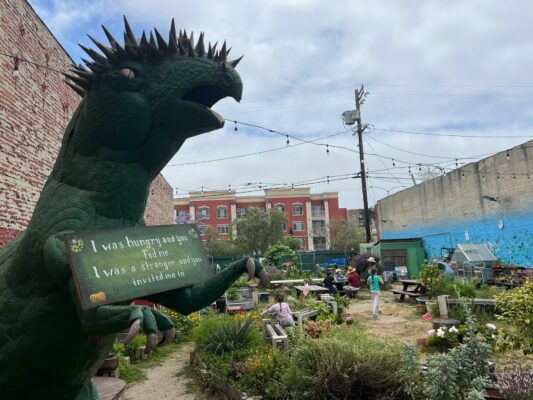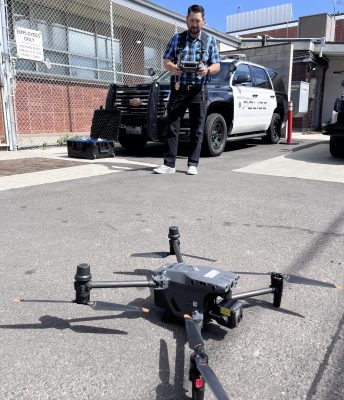
I remember the first day I saw the small little wood treasure chest on Mr. Nicholson’s his workbench. I asked him what was in it
by Dave Siemineski
Everybody knew everybody. That’s the way we grew up on our block, and that’s the way it was in the 1950s. I never had a key to my house. We never locked it.
The kids played in the street, or in the backyards, and we went to the park without supervision. People were almost like extended family up and down the street. We knew all the names, and we knew all the stories. It was not just our house, but Hazel Street was home.
Generations flourished through the rotation of the seasons and years, but families maintained the continuity of the neighborhood like the changing of the Royal Guard. Nobody moved in, and nobody moved out. I loved conversations with the oldest residents on our block, and I would soak up their wisdom as if from Aristotle himself. My neighborhood had the most profound and brilliant philosophers on the planet at just the right time in my life.
“Ole Man Shannon,” as we all called him, was a crotchety old guy who pulled no punches just because I was a kid. He told me secrets most people never knew, and I never shared with anyone else. Mr. Chapman knew the whole history of the goat farms that existed before our homes, and Mr. Clemens knew where “all the bodies were buried.” Mrs. Zink shared her perspective along with a lunch tray of sandwiches, and Mr. Merton told us how all those animals hanging around yard became pets. Old Charlie Coyle and I always argued who was better, Stan Musial or Ted Williams.
Mr. Nicholson gave me the most joy. We lived right next door to each other. Although he had his own son, he treated me like one, also. His boy was always gone (being seven years older than me), so he reserved a lot of his wit and wisdom for me. I began mowing his lawn when I was probably 8 or 9 years old. That was my first job.
As my work ethic developed with this new responsibility, so did my appreciation for money and the satisfaction from a job well done. Mr. Nicholson taught me many things about working around the property. I got to know his garage as well as I did my own.
I remember the first day I saw the small little wood “treasure chest” on his work bench. It was no bigger than a box of Kleenex, and it had a small lock on its latch. The lock was so small that it looked like one hard pull would break it apart. I asked Mr. Nicholson what was in it.
“The thing that means the most to me, Davey.” He always called me “Davey.” Nobody else did. It was always Dave or David to everyone else.
“Can I see it?” I asked.
“Some day,” came the reply.
Irvin Nicholson worked as hard when he got home as he did at the lumber yard, where he earned his living. He always made me and everyone else laugh. He loved his wife, and always put her priorities first on his list of duties. Although he had a fine relationship with his son, their busy schedules seldom synced. I would sort of fill that void when the occasion called for it.
My work for him gave me credibility in our whole neighborhood. Soon I was cutting almost every lawn on the block. A dozen years later I would buy a brand new sports car with the cash I made mowing lawns on Hazel Street.
The lots on Hazel Street were exceptionally long. Our yard had gardens and fruit trees in the back, but the Nicholson lot next door was largely barren. It provided enough open space for me to really work on my golf game. One day he asked me, “Would you like a putting green in my back yard?”
Before I could even comprehend what I was hearing, a dump truck deposited two tons of dirt and gravel in his backyard. Then Old Nick proceeded to show me how to construct a real golf green. My friends came from everywhere in town to play in our back yards.
Whenever I would pass through Mr. Nicholson’s garage and he was there, I would ask him about that strange little wood box on his bench. I could not help but wonder — what could that possibly be?
As I got older, my tasks included every variety imaginable. Their family often locked themselves out of their house, and I was called upon because of my notoriously skinny body (even as a teenager). In the ‘50s, some homes had small milk passages on the outside wall, where the milkman would deliver the bottles. I could slip through that tiny opening, to the amazement of onlookers.
There were no better teachers on the planet than my mom and dad, Mr. Nicholson, Mr. Chapman, Mr. Shannon, Mrs. Zink, and all the rest of the great generation from the middle of the last century. I was one of those lucky few who was plopped down in just the right neighborhood, at the right time and with the right attitude. Other kids could have learned just as much as I did, but they were off playing with their friends. I seldom saw anyone my age engaging in deep conversations with the old folks on our block, like I did. I cherish every word of wisdom that was ever passed my way. I instinctively knew that what they were giving me could not be found anywhere else.
I moved away from Hazel Street in my early twenties. Whenever I would visit my folks, I would make sure to go see Old Nick next door.
On a phone call one day, mom mentioned that Mr. Nicholson had not been feeling well lately. I told her I would stop by soon to see him. Sadly, that would never happen. Two days later Irvin Nicholson suffered a heart attack and died. I regret not going to see him immediately to this day. That was another lesson learned, and in the most difficult fashion.
After the funeral, we went over to the Nicholson home. It was hard for me to speak to anyone because my emotions were still raw, and the place was crowded with relatives. When I left through the garage, as was my custom, I noticed that the little wood treasure box was gone.
Three days later, I received a package from a familiar address on Hazel Street. Inside was that small wood box with an enveloped attached. With great trepidation, I opened the letter. It was from Mrs. Nicholson. It read:
“Irvin asked me to mail this to you if he died before me. I have taped the key to his box here on the bottom of this letter, and I trust you will know what to do with it. I have not opened the box myself, and I feel no need to know what is inside. I only know that he wanted to make sure you had it after he was gone.
“Thank you for all you always did for us, and I know Irvin greatly enjoyed having you around.
“Warm regards, Bernice”
My hands trembled, and I had to dry my eyes before removing the key from the letter. I held the box in my lap, and paused to think of what might be inside. When I opened the box, there was just a Thank You card inside:
“Davey, I want to thank you for the time you spent with me. It meant so much, and it was the most important thing I wanted you to know. Nick.”
My eyes were now swelling, and my emotions uncontrollable. It took me a while to assemble my thoughts, but they became more coherent as I calmed down. The profound thrust of what I had just read gave me great comfort and a sense of closure to this episode in my life.
The fact that Mr. Nicholson attached the most importance to spending time with me would never be forgotten. I was always thinking in those early years that the elderly folks were giving me great gifts of wisdom. It never occurred to me until now that I might have been giving something back to them.










